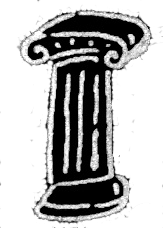LONGING
I spent years of my middle childhood yearning for a toy train set and never got one. Yearning is for something; longing is for someone. Or perhaps they are equivalent, interchangeable.
Longing functions to maintain social relationships over time, which means that there has to be some motivation to be with that person when you are separated. There is a neural explanation for that: the state of longing for someone activates the reward center in the brain, the same area (called the nucleus accumbens) that lights up during heroin or cocaine use. Thus longing is itself a reward albeit a melancholic one. And that reward center further activates during the process of reunion with the one longed for.
In effect, nature has rendered us addicts for love through longing. Think of all the popular songs and all the novels, poems, operas that retail to us the sweet, sad pleasure of wishing for someone and the joy of re-uniting with them. Or the grief over their leaving or their total loss.
I think my longing for a toy train set was nature’s rehearsing me for future longings for someone. Though the shift between child and adult passions still leaves brain space, which advertisers rely upon, for our passion for ceaseless acquisition . Objects we treasure become objects we long for, which longing/yearning, even craving, we discover and feel acutely deprived of when we window shop whether in brick-and-mortar stores, in catalogues, on online shops, or though TV and Instagram ads, even ads that pop into search engines.
We’re at the mercy of our longings, centered in our nucleus accumbens, like laboratory rodents craving their one-and-only. And in the midst of such longing we speak, from the rational end of our brain, about free will. I wonder if it will eventually be possible to program AI with the capacity to yearn.
Longing, like so many complex emotions, has its treacheries. The well-known refrain “I can’t live without you” has sometimes taken people right to the edge and over. Or it may trigger other mental liabilities that result in depression or strange behaviors or even acts of violence. There’s even a mental disorder that must surely be due to an anomalous nucleus accumbent. It’s called erotomania, the insatiable love for someone the sufferer believes loves back when, in fact, that person has virtually no reciprocal interest. Like in the movie Fatal Attraction.
The large area of the human brain, the frontal cortex, larger than any other animal, operates as mostly a logic machine, a model for AI. But other brain areas, such as the nucleus accumbens, the amygdala, the thalamus, the hypothalamus, are part of what are often referred to as the reptilian brain because these are present in most animals who lack the massive and more recently evolved frontal cortex.
In other words, we share propensities with the animal kingdom that we tend to downplay, regarding ourselves as not only intellectually superior but morally superior as well. But animals (at least the well-studied vole) long for their mate as much as we do and suffer its absence and rejoice at its return much like we do.
So, march on children of the animal kingdom, march on. We’re only a few steps ahead. Though we long for freedom from want—all wants—we are still left, as is much of the animal kingdom, in states of longing.

